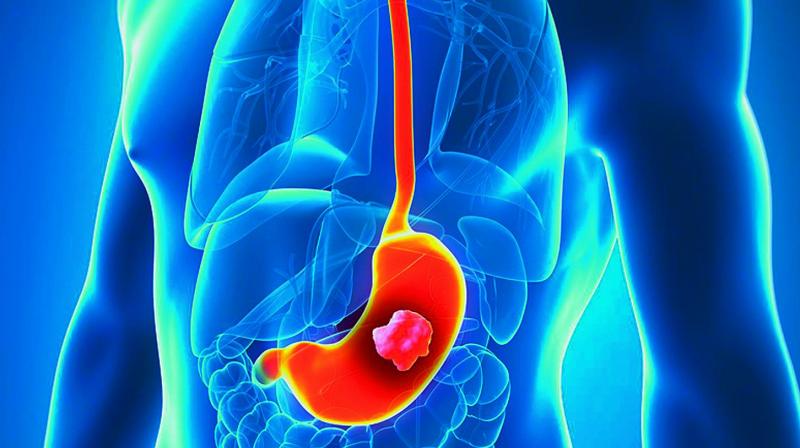India remained witness to 57,000 new gastrointestinal cancer in 2018
There is lack of awareness about this type of cancer and more awareness is needed for early detection.

Hyderabad: Gastrointestinal (GI) cancer (stomach) is the fourth most prevalent cancer in India. Last year, 57,394 new cases of GI cancer were documented in India. Early detection is the cornerstone of management and control of the disease.
GI progresses slowly, as a silent killer, affecting internal organs such as colon, rectum, oesophagus, stomach, liver, gallbladder, pancreas, small intestine, and appendix. There is lack of awareness about this type of cancer and more awareness is needed for early detection.
In two different studies conducted in Thiruvananthapuram and Hyderabad on the reasons behind stomach cancer, high consumption of rice and chili, and consumption of high-temperature food were found to be independent risk factors for gastric cancer in multivariate analysis. Smoking and consuming alcohol were also significantly associated with gastric cancer. The World Cancer Research Fund/ American Institute for Cancer Research (WCRF/ AICR) classified salt and salty foods as probable causes of stomach cancer.
It affects more men than women. The symptoms are difficulty in swallowing, discomfort in the abdomen, persistent indigestion and dark stools with or without blood. Most patients do not consider going for immediate screening with these symptoms.
Dr Naveen Polavarapu, consultant gastroenterologist, said, “Unfortunately by the time symptoms arise the cancer is already in the advanced stage. While advanced technology helps in early detection of GI cancer, patients with obstructive jaundice and suspicion of bile duct cancer cannot be confirmed by CT scan, MRI and ERCP. New medical interventions, direct visualisation of duct and doing a biopsy helps in early detection of bile duct cancer which cannot be diagnosed with the routine modality.”
Speaking of treatment, Dr Sai Ram, an oncologist from MNJ Cancer Hospital said, “Gastric cancer can be divided into Intestinal and Diffuse cancer. 5 Fluorouracil has been used for more than 50 years for the treatment of the most common solid tumours, but there are serious side effects like gastrointestinal toxicity and others. Prior to 2014 there was only one line of treatment. But at present we have two-line and three-line treatments available.” He said that “cytotoxic chemotherapies are typically used as standard first line therapy. Ramucirumab as a single agent or in combination with paclitaxel is indicated for treatment of patients with advanced or metastatic gastric stage. Patients showed an improved response rate with Ramucirumab. Trials have demonstrated that Ramucirumab is an effective drug for treatment of patients with resistant metastatic cancer.”

